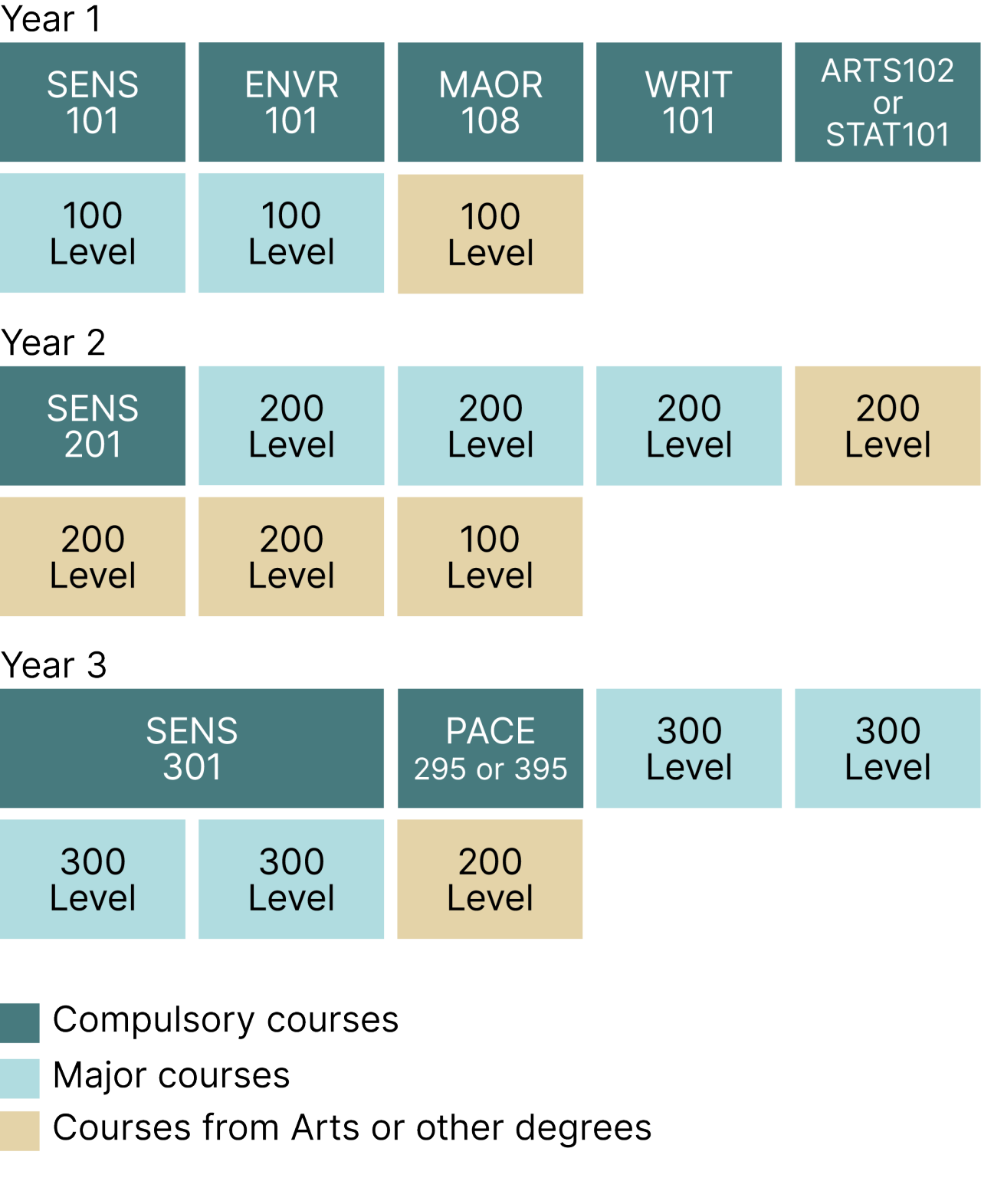Bachelor of Social and Environmental Sustainability
- Degree Structure - Duration
- 3 years full-time

From pollution and climate change to world hunger, UC's Bachelor of Social and Environmental Sustainability (BSEnS) explores the biggest global problems humans have caused by injustice towards the environment and communities. Find out about studying a BSEnS through our Te Kaupeka Toi Tangata | Faculty of Arts.
360
2024 tuition fees estimate per 120 points:
The BSEnS explores the biggest problems we face globally, from pollution and climate change to world hunger.
You will gain meaningful skills including understanding how and why these issues happen, and the actionable steps we need to change these.
Help us build a sustainable and equitable future in business, policy, and global society.
Admission to UC with University Entrance (or equivalent) is required to enrol.
If English is your additional language, you are also required to meet UC's English language requirements.
See Admission and enrolment for all information on enrolling at UC.
Anyone from any study background will be able to study the BSEnS.
Interests in environmental science and sustainability, voluntary work, economics, or social change will be particularly useful to get the most out of study. Strong communications skills will also be very helpful.
The BSEnS degree includes compulsory courses to introduce you to sustainability systems thinking for change, and to develop key skills in communication, problem-solving, indigenous partnerships, and community leadership.
You will also choose a major to study throughout the degree, and you may also choose to complete a minor.
See ‘Planning my degree’ below for an example degree structure diagram.
Year 1
Year 2
Year 3
You may choose to continue on to the Bachelor of Arts with Honours, Master of Arts, or Master of Arts (Thesis) in a variety of related subjects, such as Political Science and International Relations or Geography.
UC also offers many master's degrees with a focus on environmental change and social systems, for example:
Find out more about what can you do with a degree from UC.
2024 tuition fees estimate (per 120 points):
2023 tuition fees estimate (per 120 points):
SSL estimate (per 120 points):

Each small block represents a 15-point course. However, some courses may be 30 points or more.
This diagram is an example only – other combinations are possible. For specific course requirements, see the Regulations for the Bachelor of Social and Environmental Sustainability.
The Bachelor of Social and Environmental Sustainability is made up of a total 360 points:
A minimum of 225 points must be from courses above 100-level, with at least 90 points at 300-level.
The degree takes 3 years of full-time study, or can be studied part-time for up to 10 years.
For the full degree requirements, see the Regulations for the Bachelor of Social and Environmental Sustainability.
BSEnS students have the option of completing either:
Each major has specific course requirements, but all consist of a minimum of 135 points, with at least 45 points above 100-level and at least 60 points at 300-level.
A minor consists of a minimum of 75 points, including at least 45 points above 100-level, in a single subject chosen from Arts, Commerce, Digital Screen, Health Sciences, Product Design, Science, Sport, or Youth and Community Leadership degrees.
It is possible to study a BSEnS alongside other degrees at the same time, such as the Bachelor of Science or Bachelor of Health Sciences.
Find out more information about Double degrees.
You can study a conjoint degree and merge your BSEnS with options such as the Bachelor of Engineering with Honours, so that you can complete major subjects from multiple areas in a shorter timeframe.
Find out more information about Conjoint degrees.